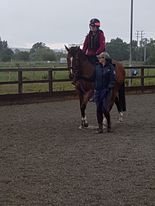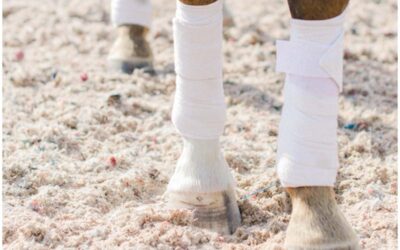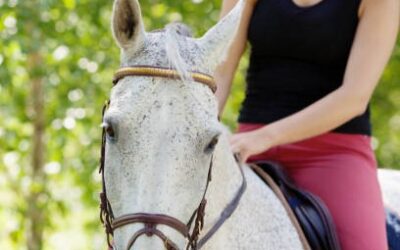One aspect of studying psychology I find absolutely fascinating is the impact of psychology on skill acquisition. In particular the gap between declarative and procedural knowledge. In other words, the difference between knowing what to do and the knowing how to do. In my time working in the equine industry, I have come across riders who are extremely knowledgeable and have an impressive understanding of horse of rider biomechanics, being able to verbalise the “how to” with great clarity and detail. However, sometimes these riders appear to struggle to convert this knowledge into actual physical skill. In contrast I have come across riders who have stacks of experience and ability but who are largely unaware of what exactly it is that they do and as a result struggle to verbalise it. It’s this reason that while elite riders can make excellent trainers, they sometimes struggle to make good teachers, particularly when the gap between their skill set and that of the rider they are teaching is considerable. So, for me, as a coach, an important question I’m continually seeking to answer is how do we bridge the gap between explicit knowledge and implicit skill?
In a previous blog I have talked about the conscious processing hypothesis more commonly known as ‘paralysis by analysis’ or choke. This is when, under pressure an athlete tries to consciously control a skill that has long since been automated resulting in a decline in performance. This effect has been experienced across a range of disaplines, from maths tests to elite competition and will resonate with many riders, one of my friend refers to it as centre lineitis! However, it got me thinking, if over thinking can affect automated performance can it also affect performance that is in the process of being established. I think it is important here to put a reminder of the three stages of skill acquisition. First the cognitive stage where initial learning and understanding takes place. Secondly the associative period where practice allows skill to become established, the stage of ‘got it, lost it, got it, lost it’ and finally the autonomous stage where skill becomes largely unconscious and automated. It’s at this final stage where overthinking can have disastrous effects on performance. But what about the associative stage? The stage where we seek to transfer explanation and learning into skill through trial, error and feedback. Awareness, after all, at this stage is key, otherwise how can we finetune our technique and ensure that we are automating the right things! But in our efforts to perfect performance can we overthink our way into paralysis. In my experience I think riders can and often do.
The experience of ‘choke’ in performance is well documented and has plenty of anecdotal as well as experimental evidence to back it up. Studies have shown that focusing on the motor movement causes a decline in performance when compared to focus on an external effect. This impact is often seen as a result of an increase of pressure, such as in competition, which causes the athlete to overthink a skill that is largely automated. Tim Gallwey in his book inner game of tennis highlighted how this effect could be taken advantage of by suggesting that if you wanted to throw your opponent’s game you should ask them what it is they are doing to make their forehand so good, encouraging him to bring his skill into conscious awareness and in doing so disrupting it. Interestingly one study by Gabrilele, Wachter and Wortmann found this effect was even more notable in female athletes!
So how does this apply to skill acquisition in riders? In my experience some riders are so motivated to ride well and improve technique, they produce an extremely long list of all the things they need to do better and they end up tying themselves up in knots! So how do we stop ourselves from falling down the rabbit hole of overthinking? Firstly, whilst at times instruction of motor movement cannot be avoided, particularly at the early stages of learning, it is worth noting that feedback that draws attention to external effect can be far more effective at producing smooth and effective technique than feedback that encourages a more internal focus. A good example of this is the often heard correction ‘slow the speed of your rise to slow the speed of his feet’. This advice while theoretically correct can often leave riders feeling tense and out of sync, an alternative I find to be far more useful is one I learnt from Mary Wanless, which is to imagine you are sitting in glops of chewing gum and you’re rising up against the resistance of the strings of chewing gum. This I find has the impact of creating the tone and coordination needed to gain control of the speed of the rise and in turn influence the horses tempo but without causing the rider to become overly tense. The use of similes and metaphors that encourage the rider to hold themselves against an imagined resistance, for example, encouraging the rider to ‘lean into a strong wind to prevent leaning behind the vertical or encouraging the rider to push an imaginary wheelbarrow to prevent backward drawing hands I have found to be extremely effective . So my first piece of advice is if you want to find a way to transfer book learning into physical skill seek out books that use similes and metaphors that you can take with you into your practice sessions (it is important to note however as everyone has a different starting point there is no substitute for a good coach!). I would highly recommend both Mary Wanless and Sally Swift’s books for some great imagery that can be super effective. Secondly once you have a clear internal representation of what you are trying to achieve, try avoid detailed overly technical internal dialog and instead find a key word or phrase that brings to mind the picture of what they are trying to achieve, For example ‘through’ or ‘forward’. This phrase can then be repeated like a mantra to create a positive mental picture whilst quietening the chatty conscious mind. So, remember while detailed technical knowledge can sound impressive and a good theoretical knowledge is a must for any rider. In the moment, when seeking to optimise performance, sometimes simplicity is best!
Cited studies
Directing attention to movement effects enhances learning: a review, Wulf & Prinz (2001)
Attentional focus in motor skill learning: do females benefit from an external focus? ,Wulf, Wachter & Wortmann (2003)





0 Comments